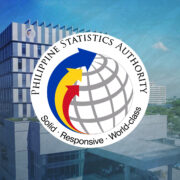In mission, we become the icon and presence of the Trinity

June 15—The Solemnity of the Most Holy Trinity
Readings: Proverbs 8:22-31; Psalm 8, R. O Lord, our God, how wonderful your name in all the earth!; Romans 5:1-5; Gospel-John 16:12- 15
Today we celebrate Trinity Sunday. It is a good time to reflect on community, our first point, followed by the grace that comes through a genuine community to allow its members diversity in union, and finally, the union that comes from love.
The Trinity has always been a model of a Christian community and the model of the church as a community.
When we were studying ecclesiology in theology school under Fr. Catalino G. Areva- lo, S.J., one of our main textbooks, a translation of his from the Italian, was titled “The Church, an Icon of the Trinity.”
This class and the brilliance of Fr. Areva- lo left this imprint on me of how our church is a reflection of the Trinity, a reflection and continuation of the grace and mission of the Trinity.
This, in turn, was influenced by the Ignatian meditation on the mystery of the In- carnation where the Father, Son, and Holy Spirit, contemplating what was happening to the world-the violence, the hatred, the deterioration of morality, the loss of a sense of sin, etc. that was leading it into destruction—they decided to send the Son. The mis- sion began.
It was a mission of compassion and mercy when the Son, sent by the Trinity, enters the world of humanity in all its brokenness and sinfulness and its latent hope, emptying himself of his divinity.
It was the action of the Son, an action that flows from and continues to be united with the action of the Trinity to send the Son on a mission to proclaim the Trinity’s love of mercy and forgiveness.
This is the same relationship and action we are invited to live. We are asked to live a life of mission, as the Trinity lived a life of mission that became visible to us starting in the mystery of the Incarnation.
In mission, we become the icon and pres- ence of the Trinity today, individually, as a community, and as a church.
The Trinity as a community is the exemplar of the principle of community that allows its members, deeply united, to be diverse, to be the best of who they can become individually, yet united in mind, heart, and spirit.
Safe and sacred space
In union, there is diversity. The union of the community provides the safe space and the sacred space that allows us, each member of the community, to come to our own uniqueness and individuation.
It is a space where we discover our personal and, we pray, authentic relationship with God. It is a relationship that always invites us, “Come follow me.”
Our union comes from sharing in this one mission with Jesus. Our diversity comes from this same mission. There is no generic mission, as there is no generic grace. Both are rooted in our personal relationship with Jesus.
We continue the Lord’s mission, each in a unique way, as we are blessed with unique journeys that shape our personal relationship with the Lord and our personal charism to share in the mission.
The union comes from this shared mis- sion, our discipleship, our being followers of Jesus.
Our final point for reflection, the core from which this mission comes. Love is the core of the mission.
We see this clearly in the final discourse in the Gospel of John. As Jesus left behind his greatest commandment, we see the progres- sion of this love, and with it the core of the mission.
“A new command I give you: Love one another. As I have loved you, so you must love one another. By this everyone will know that you are my disciples, if you love one another.” (John 13:34-35)
Our being community comes from our love for one another that is a living out of the Lord’s saving love-merciful and compas- sionate, forgiving and life-giving, life eternal.
“Anyone who loves me will obey my teaching. My Father will love them, and we will come to them and make our home with them.” (John 14: 23) The Lord brings us into his relationship of love with the Father, and they will make their dwelling in us.
The Lord in today’s Gospel said, “I have much more to tell you, but you cannot bear it now. But when he comes, the Spirit of truth, he will guide you to all truth.” (cf. John 16:12- 15)
The fullness of God’s revelation, God’s truth, God’s love, is Trinitarian.





















